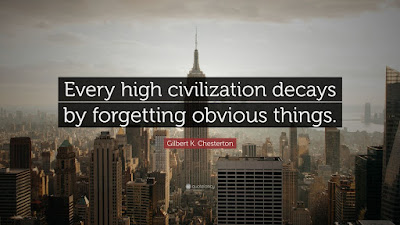"Don't Take Anything Personally"
by Don Miguel Ruiz
"Whatever happens around you, don't take it personally. Using an earlier example, if I see you on the street and I say, "Hey, you are so stupid," without knowing you, it's not about you; it's about me. If you take it personally, perhaps you believe you are stupid. Maybe you think to yourself, "How does he know? Is he clairvoyant, or can everybody see how stupid I am?"
You take it personally because you agree with whatever was said. As soon as you agree, the poison goes through you, and you are trapped in the dream of hell. What causes you to be trapped is what we call personal importance. Personal importance, or taking things personally, is the maximum expression of selfishness because we make the assumption that everything is about "me." During the period of our education, or our domestication, we learn to take everything personally. We think we are responsible for everything. Me, me, me, always me!
Nothing other people do is because of you. It is because of themselves. All people live in their own dream, in their own mind; they are in a completely different world from the one we live in. When we take something personally, we make the assumption that they know what is in our world, and we try to impose our world on their world.
Even when a situation seems so personal, even if others insult you directly, it has nothing to do with you. What they say, what they do, and the opinions they give are according to the agreements they have in their own minds. Their point of view comes from all the programming they received during domestication.
If someone gives you an opinion and says, "Hey, you look so fat," don't take it personally, because the truth is that this person is dealing with his or her own feelings, beliefs, and opinions. That person tried to send poison to you and if you take it personally, then you take that poison and it becomes yours. Taking things personally makes you easy prey for these predators, the black magicians. They can hook you easily with one little opinion and feed you whatever poison they want, and because you take it personally, you eat it up.
You eat all their emotional garbage, and now it becomes your garbage. But if you do not take it personally, you are immune in the middle of hell. Immunity to poison in the middle of hell is the gift of this agreement.
When you take things personally, then you feel offended, and your reaction is to defend your beliefs and create conflicts. You make something big out of something so little, because you have the need to be right and make everybody else wrong. You also try hard to be right by giving them your own opinions. In the same way, whatever you feel and do is just a projection of your own personal dream, a reflection of your own agreements. What you say, what you do and the opinions you have are according to the agreements you have made- and these opinions have nothing to do with me.
It is not important to me what you think about me, and I don't take what you think personally. I don't take it personally when people say, "Miguel, you are the best," and I also don't take it personally when they say, "Miguel, you are the worst." I know that when you are happy you will tell me, "Miguel, you are such an angel!" But, when you are mad at me you will say, "Oh, Miguel, you are such a devil! You are so disgusting. How can you say those things?" Either way, it does not affect me because I know what I am. I don't have the need to be accepted. I don't have the need to have someone tell me, "Miguel, you are doing so good!" or "How dare you do that!"
No, I don't take it personally. Whatever you think, whatever you feel, I know is your problem and not my problem. It is the way you see the world. It is nothing personal, because you are dealing with yourself, not with me. Others are going to have their own opinion according to their belief system, so nothing they think about me is really about me, but it is about them.
You may even tell me, "Miguel, what you are saying is hurting me." But it is not what I am saying that is hurting you; it is that you have wounds that I touch by what I have said. You are hurting yourself. There is no way that I can take this personally. Not because I don't believe in you or don't trust you, but because I know that you see the world with different eyes, with your eyes. You create an entire picture or movie in your mind, and in that picture you are the director, you are the producer, you are the main actor or actress. Everyone else is a secondary actor or actress. It is your movie.
The way that you see that movie is according to the agreements you have made with life. Your point of view is something personal to you. It is no one's truth but yours. Then, if you get mad at me, I know you are dealing with yourself. I am the excuse for you to get mad. And you get mad because you are afraid, because you are dealing with fear. If you are not afraid, there is no way you will get mad at me. If you are not afraid, there is no way you will hate me. If you are not afraid, there is no way you will be jealous or sad.
If you live without fear, if you love, there is no place for any of these emotions. If you don't feel any of those emotions, it is logical that you will feel good. When you feel good, everything around you is good. When everything around you is good, everything makes you happy. You are loving everything that is around you, because you are loving yourself. Because you like the way you are. Because you are content with you. Because you are happy with your life. You are happy with the movie you are producing, happy with your agreements with life. You are at peace, and you are happy. You live in that state of bliss where everything is so wonderful, and everything is so beautiful. In that state of bliss you are making love all the time with everything that you perceive.”



.jpeg)































